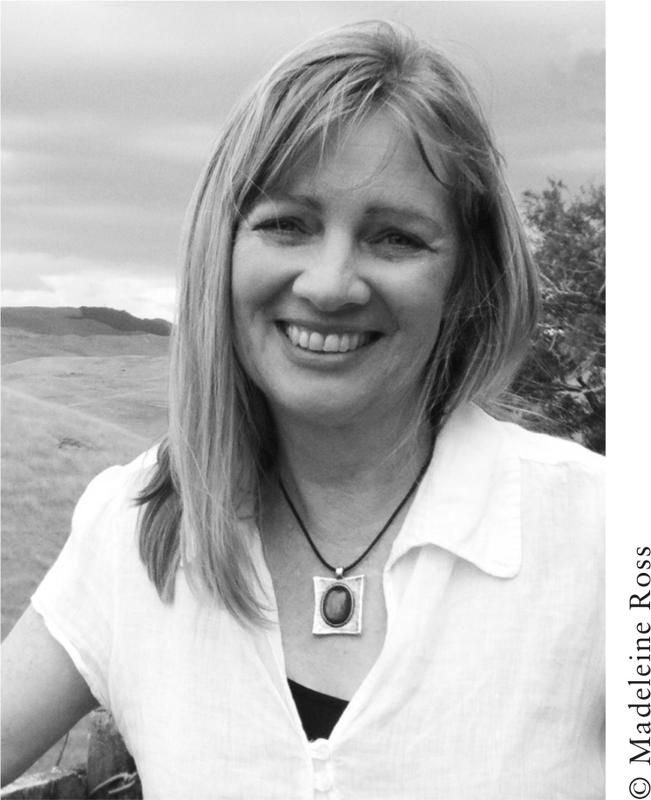Evie's War (32 page)
Authors: Anna Mackenzie

We are down to a skeleton staff so that as many as possible might attend the parades; apparently London has gone quite mad. Sister says I might have tomorrow off as long as âmy young man promises to take good care of me'. So it seems there are no secrets after all.
The streets were jammed wall to wall, flags and hats waving, and quite a number looking as if they had begun their celebrations two days before and not yet stopped. But all were smiling and cheering. It was not long before we reached a point beyond which we could not go, and then the official convoy arrived and the crowd surged and I lost Arthur â he had been by my side one minute and was gone the next. I called out, but no one could have heard over the roar of the crowd, and another surge swept me along and I began to feel rather panicked. Then heard Matron from 1st Eastern, as clear as if she was standing beside me, saying: âShe is a very sensible girl, not prone to losing her head.' And that stopped me. I asked the men on either side whether they might lift me up and they cheerfully joined their hands to make a step and I was hoisted on high, staring down at the heaving mass of the crowd.
It was astonishing â a sea of people from Admiralty Arch all the way to the Palace. I was quite sure I had never seen so many gathered in one place. And then came a terrible thought: that there were as many dead, men and women, soldiers and civilians, Allies and enemies, that in a single battle we had killed all these and more, and then again, and again. My heart stopped. I could not breathe. I had a hand on the shoulders of each of the men lifting me â I do wonder if I left bruises. Suddenly I wanted to be down, to be out of it. I twisted, to try to get them to understand, and then I saw Arthur. He was a dozen feet away, looking around rather wildly. Our eyes met and his expression registered such relief and happiness, and I recognised the same feelings in my own breast. And knew.
I raised one arm â precarious balance! â and he began to wade towards me. I stepped down from my perch and he swept me up.
âI thought I had lost you,' he said.
I nodded, unable to speak.
âBetter hold on to that one, Jack,' one of the men who had lifted me said.
Arthur's arms were tight about me, so that I could feel the tension running through him.
âIt is over,' I said. âReally, finally over.' And lifted my arms to his neck. âAnd just beginning.'
The First World War, âthe Great War', is part of the fabric of my family heritage. Through my childhood we marked ANZAC Day, 25 April, with a family ritual that acknowledged the sacrifice and suffering of a generation gone, and understood from a young age the significance of the day.
Evie's War
grew out of that rich family heritage. A conversation with my aunt, our last living link with the WWI years, led me to turn a question in my mind and eventually to launch into research that grew exponentially, continuing â and diverging â as the novel took shape.
Reference material of specific relevance to this novel includes Lieut.-Col. A.D. Carbery's
The New Zealand Medical Service in the Great War
(Whitcombe & Tombs, 1924),
While You're Away
by Anna Rogers (AUP, 2003),
The Other Anzacs
by Peter Rees (Allen & Unwin, 2008),
Women in the War Zone
by Anne Powell (The History Press, 2009). Additionally I immersed myself in diaries, letters and memoirs, and specifically mention the writings of NZANS Matron-in-Chief Hester Maclean, Sarah Macnaughtan, Ruth Cowen, Olive Dent, Vera Brittain, Lady Dorothy Feilding, Ida Willis, Mary Bordan, BEF Matron-in-Chief Maud McCarthy, Ellen Newbold La Motte, Elsie Knocker,
Louise Mack, Leslie Buswell, Arthur Anderson Martin, Sir Gordon Bell. General histories I have found useful include works by Glyn Harper (in particular
Dark Journey
, HarperCollins, 2007), Max Arthur (especially
Last Post
, Weidenfeld & Nicolson, 2005), 2
nd
Lieut. O.E. Burton's
The Auckland Regiment
(Whitcombe & Tombs, 1922), Col. H. Stewart's
The New Zealand Division
(Whitcombe & Tombs, 1921), together with other histories of the War and collections of letters and diaries. Museums, archives and the internet additionally proved rich sources of information, both generic and obscure.
Evie's War
is a work of fiction and its characters are entirely fictional. I have endeavoured to ensure historic accuracy throughout. Where conflict existed in source material or where details have become obscured by time, I have opted for the version of events that, in my opinion, best fits accepted facts. Where historic figures appear, attitudes and and characteristics attributed to them are my own invention.
Thanks to my first readers, Jan Clothier, Madeleine Ross, Kirsty van Rijk and Catherine Blake for feedback and encouragement, and to the team at Penguin Random House, particularly the ever-supportive Barbara Larson and meticulous Rebecca Lal.
In 2013 I was awarded a writing residency in Belgium by Passa Porta, International House of Literature. This wonderful opportunity allowed time for both writing and research, time to develop a feeling for the places for which so many fought and died, and for the dues still owed. For this I offer sincere thanks to the team at Passa Porta, and to Alessandra, Paul and Ann at Vollezele, who provided a warm welcome and wonderful workspace. I also gratefully acknowledge Creative NZ for assistance with travel costs to Belgium in 2013 and to London in 2014.
For providing safe havens, encouragement, logistical support and more, thanks to Ann Frankel, Sally Carlaw,
Jane Clark and Arthur MacDonald. Additional thanks to all who shared in the innumerable conversations that led me down the path of this book; to Rachel Mackenzie for âtechie' support; John McIntyre for a timely question; and to Hamish for, among other things, understanding why it matters.
For anyone wishing to journey through this particularly fraught patch of history, Ieper (Ypres), Messines, Albert and Arras all provide an admirable starting point. But our understanding of this war does not lie so much in cemeteries, trenches and battlefields as in stories.
Evie's War
aims to provide a voice for stories less frequently told, of families and communities in England and New Zealand, of women at home and at the Front, of children too young to serve but not to see, of the survivors and the scarred.
For more information about the background to writing this novel â research details, photos, useful links and notes â visit my new website:
annamackenzieauthor.com


Anna Mackenzie lives on a farm in Hawke's Bay, New Zealand. For the past three years she has immersed herself in researching the history, experience and legacy of the Great War â she's worried she might have become obsessed.
Evie's War
is Anna's ninth novel. Her previous works have earned her numerous accolades including a New Zealand Post Honour Award, Sir Julius Vogel Award, six CLNZ Notable Book Awards, and more.
You can find out more about Anna and her books at her new website:
annamackenzieauthor.com
High Tide,
2003
Out on the Edge,
2005
Shadow of the Mountain,
2008
Â
The Sea-wreck Trilogy:
The Sea-wreck Stranger,
2007
Ebony Hill,
2010
Finder's Shore,
2011
Â
Books of Elgard:
Cattra's Legacy,
2013
Donnel's Promise,
2014
Â

The assistance of Creative New Zealand towards the production of this book is gratefully acknowledged by the publisher and author.
LONGACRE
UK | USA | Canada | Ireland | Australia
India | New Zealand | South Africa | China
Longacre is an imprint of the Penguin Random House group of companies, whose addresses can be found at
global.penguinrandomhouse.com
.

First published by Penguin Random House New Zealand, 2015
10 9 8 7 6 5 4 3 2 1
Text copyright © Anna Mackenzie 2015
The moral right of the author has been asserted.
All rights reserved. Without limiting the rights under copyright reserved above, no part of this publication may be reproduced, stored in or introduced into a retrieval system, or transmitted, in any form or by any means (electronic, mechanical, photocopying, recording or otherwise), without the prior written permission of both the copyright owner and the above publisher of this book.
Design by Carla Sy © Penguin Random House New Zealand
Cover photograph by Mark Owen © Trevillion Images
Maps on pages 6 & 7 by Anna Mackenzie
Typeset in Maori Sabon
Printed and bound in Australia by Griffin Press, an Accredited ISO AS/NZS 14001 Environmental Management Systems Printer.
A catalogue record for this book is available from the National Library of New Zealand.
ISBN 978-1-77553-765-6
eISBN 987-1-77553-766-3
